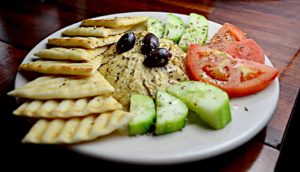
For centuries, the sun-drenched regions bordering the Mediterranean Sea have been celebrated for their vibrant culture and delicious cuisine. Now, a growing body of scientific evidence suggests that this way of eating holds a powerful secret: it may be one of the most effective strategies for preserving cognitive health as we age. The Mediterranean diet, long lauded for its benefits to the heart, is emerging as a formidable ally for the brain, offering a delicious prescription for long-term mental agility.
What Does a Mediterranean Diet Look Like?
So, what exactly does the Mediterranean diet entail? It’s less a strict regimen and more a lifestyle pattern emphasizing whole, minimally processed foods. At its heart are:
- Abundant Fruits and Vegetables: Packed with antioxidants and polyphenols, these foods combat the cellular damage that can contribute to brain aging. Think leafy greens, berries, tomatoes, and eggplants.
- Healthy Fats, Especially Olive Oil: Extra virgin olive oil is the cornerstone, rich in monounsaturated fats and potent antioxidants that fight inflammation.
- Whole Grains: Oats, barley, quinoa, and brown rice provide a steady release of energy (glucose) to the brain, avoiding the spikes and crashes associated with refined carbohydrates.
- Fatty Fish: Salmon, mackerel, sardines, and tuna are excellent sources of omega-3 fatty acids (DHA and EPA), which are crucial building blocks for brain cells and help reduce inflammation.
- Nuts and Seeds: Walnuts, almonds, and flaxseeds provide another dose of healthy fats, vitamin E, and antioxidants, all of which are protective for neuronal membranes.
- Legumes and Moderate Poultry: Beans, lentils, and chickpeas offer fiber and protein, while poultry is consumed in moderation compared to red meat.
Conversely, the diet minimizes red meat, sugar, refined grains, and highly processed foods—all of which are linked to increased inflammation.
Studies Show Improved Brain Health with the Mediterranean Diet
Recent scientific findings from peer-reviewed studies confirm that the Mediterranean diet significantly supports brain health and reduces cognitive decline. A comprehensive meta-analysis of 23 studies found that greater adherence to the Mediterranean diet is associated with an 11–30% reduction in the risk of age-related cognitive disorders, including an 18% reduced rate of cognitive decline, an 11% reduced risk of dementia, and a 30% reduced risk of Alzheimer’s disease. The diet’s neuroprotective effects are attributed to its rich content of antioxidants, vitamins, and polyphenols found in fruits, vegetables, and extra virgin olive oil, which combat oxidative stress and inflammation—key factors in neurodegeneration.
Key components of the diet offer specific benefits. Omega-3 fatty acids from fish are crucial for maintaining the structural integrity of neuronal membranes and promoting synaptic plasticity. Whole grains help maintain stable blood sugar levels, which is important as insulin resistance is linked to cognitive decline.
Furthermore, a specialized “green-Mediterranean diet,” which is enhanced with green tea and the aquatic plant Mankai, has been shown to slow brain aging by reducing blood proteins associated with neurological conditions like Alzheimer’s disease. Researchers suggest the diet’s protective effects stem from the synergistic interactions between its various components, which modulate everything from gut-brain communication to gene expression through epigenetic changes.
This growing body of evidence positions the Mediterranean diet as a powerful strategy for preserving cognitive function and promoting healthier brain aging.
The Mediterranean Diet In Your Kitchen
Adopting a Mediterranean style of eating doesn’t require a passport. Here are simple, practical steps to get started:
- Make Olive Oil Your Go-To Fat: Use olive oil for sautéing vegetables, making salad dressings, and even drizzling over cooked foods instead of butter or margarine.
- Go Fish Twice a Week: Aim to incorporate fatty fish into two meals per week. Canned salmon or sardines are affordable, easy-to-store options.
- Embrace Meatless Mondays (and More): Build meals around beans, lentils, or chickpeas instead of meat. A hearty lentil soup or a chickpea salad is both satisfying and brain-healthy.
- Snack on Nuts and Fruit: Keep a mix of unsalted nuts and fresh or dried fruit on hand for a smart snack. A handful of walnuts and an apple is a perfect combination.
- Fill Half Your Plate with Plants: Make vegetables the star of your lunch and dinner. Experiment with roasting them to bring out their natural sweetness.
- Choose Whole Grains: Swap white bread for whole-grain, white rice for brown rice or quinoa, and regular pasta for whole-wheat versions.
- Savor and Share: The Mediterranean diet is also about enjoyment. Cook with family or friends, eat mindfully, and relish the flavors of real, wholesome food.
The path to preserving cognitive wellness is not found in a single “superfood,” but on a plate filled with variety, color, and life. By embracing the principles of the Mediterranean diet, older adults can nourish their bodies and invest in a future of clearer, sharper thinking. To learn more about nutrient rich superfoods to add to your diet, click here.
Have Health Insurance Questions?
We hope that this information on the Mediterranean diet is helpful for you. This article was updated on September 24th, 2025.
Insurance is oftentimes overwhelming, and we want to shed light on the industry by answering your questions. Comment below and your question may be the topic of our next post!
If you liked this article, share it with your friends!
Empower Brokerage wants to help you find the insurance coverage you need and help you save money getting it. Stay on top of your health and give us a call at (844) 410-1320.
Get affordable health insurance quotes by clicking here.
See our other websites:
This article was updated on September 24, 2025.

